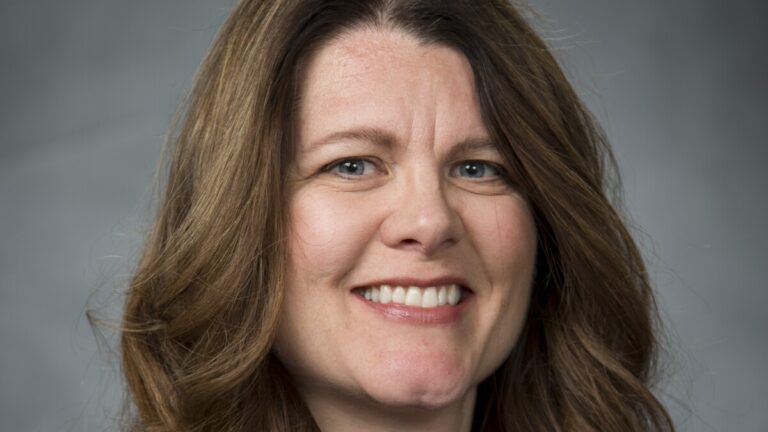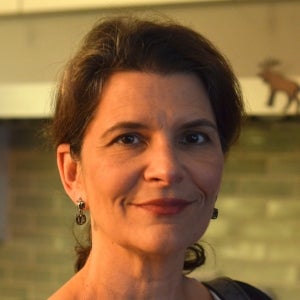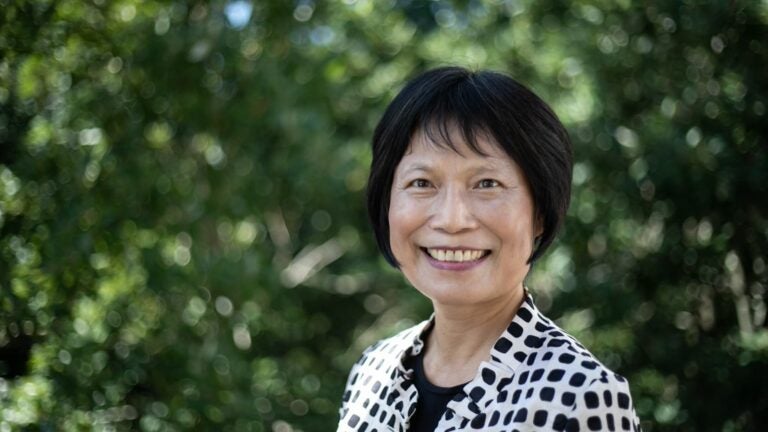
The paths to global competence: The Representations of Authenticity in the Pedagogical Strategies of Project-Based and Task-Based Learning
From the communicative approach, task-based learning (TBL), and project-based learning (PBL) to learning by design, the evolution of contemporary language pedagogical methodologies has progressed towards addressing real-world issues through highly structured frameworks and processes.
This fall, USC CLC will host a series of PBL/TBL talks and workshops to discuss integrating these methods into language curriculums and the challenges and steps of their implementation. The presentations will showcase various degrees of authenticity achieved through PBL/TBL to illustrate their impact on learners.
Additionally, USC language faculty members will participate in a round table discussion to share their PBL/TBL practices. The event will conclude with a comprehensive hands-on PBLL workshop led by an experienced trainer.
Join us for this inspirational series event in the fall!
Schedule at a Glance and Registration
-
Date and Time: August, 25, 12pm
Location: THH 309H or online
Presenter: Maria Carreira
Short Description: This workshop aims to address the gap in teaching methodologies for heritage language learners studying in mixed classes, identifying general strategies and approaches for this instructional context, and practicing the principles of project-based language learning to ensure that the needs of all learners are properly addressed.
-
Date and Time: September, 15, 12pm
Presenter: Orlando R. Kelm
Short Description: The presentation aims to share practical strategies for task-based and project-based learning of business language that also apply to other models of language teaching, as language for business purposes requires real-life applications and expertise in specific areas.
-
Date and Time: September, 29, 12pm
Presenter: Miao-fen Tseng
Short Description: This presentation showcases how authenticity and tasks govern the design and implementation of a technology-mediated task-based language course in Mandarin Chinese, highlighting curricular design, syllabus essentials, and versatile technology tools that fulfill curricular and pedagogical goals, and demonstrates how to navigate the OER Pressbooks platform for free download materials.
-
Date and Time: October, 6, 12pm
Presenter: Ying Jin
Short Description: In this session, attendees learned how Project Based Learning (PBL) and the “Genius Hour” model can be used to develop Chinese classroom projects that allow students to use the target language in meaningful and authentic ways while exploring social justice issues, with insights into the project design thinking process, step-by-step implementation plan, logistics, and strategies for involving students in the evaluation process.
-
Date and Time: October, 23, 4pm (note change of date and time)
Location: THH 309K and
Presenters:
- Tin-Yu Tseng: Use of PBL to enhance students’ language and cultural learning with examples of “small” projects
- Woojoo Kim: Creation of a digital newspaper
- Gayle Fiedler-Vierma: Students collaborate with LA River X to do real life/real time translations of their Instagram account
- Mina Soroosh: Creation of videos where students present themselves in order to find a francophone language exchange partner
- Atiyeh Showrai: Semester-long simulation exercise that leads to the writing of a collaborative novel.
- Maria Mercedes Fages Agudo: USC university life showcase
Short Description: USC faculty will share how they have integrated PBL/TBL projects in their language courses, discuss the challenges and present steps for their implementation.
Interested in joining the panel? Contact Professor Tin-Yu Tseng at tinyutse@usc.edu
-
Date and Time: November, 3, 12:00-2:30 pm
Location: THH 309
Light lunch will be served.
Registration Form (spots are limited)
Presenter: Cherice Montgomery
Short Description: This interactive workshop aims to demonstrate practical strategies for integrating authenticity into language lessons to enhance student engagement and meaningful target language communication.
Participants attending live talks will receive a digital certificate and a badge confirming their participation.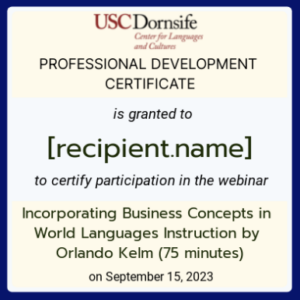
Talks and workshops Description
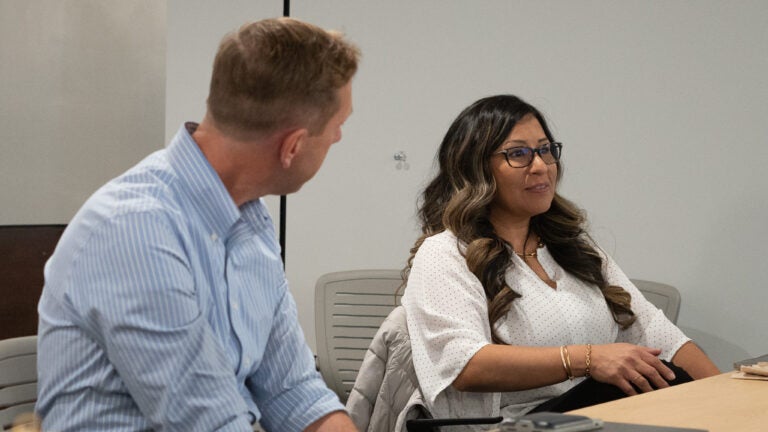
October 25: Faculty Roundtable
Date and Time: October, 23, 4pm
Location: 309K
Presenters:
- Tin-Yu Tseng: Use of PBL to enhance students’ language and cultural learning with examples of “small” projects
- Woojoo Kim: Creation of a digital newspaper
- Gayle Fiedler-Vierma: Students collaborate with LA River X to do real life/real time translations of their Instagram account
- Mina Soroosh: Creation of videos where students present themselves in order to find a francophone language exchange partner
- Atiyeh Showrai: Semester-long simulation exercise that leads to the writing of a collaborative novel.
- Maria Mercedes Fages Agudo: USC university life showcase
Short Description: USC faculty will share how they have integrated PBL/TBL projects in their language courses, discuss the challenges and present steps for their implementation.
Interested in joining the panel? Contact Professor Tin-Yu Tseng at tinyutse@usc.edu
November 3 (In-person workshop) Stepping Toward PBLL: Simple Strategies for Supporting Student Engagement
The purpose of this 2-hour, interactive workshop is to demonstrate simple strategies for integrating authenticity into language lessons in ways that motivate meaningful target language communication and student engagement.
Come explore how taking small steps toward a project-based language learning approach in your language courses can empower your students to take a more active role in their own learning! During the workshop, participants will experience: (1) simple strategies for using authentic resources to encourage sustained cultural inquiry; (2) interactive activities for inviting communication and collaboration; (3) effective techniques for supporting learners’ comprehension and creative self-expression in the target language. The practical strategies and activities that will be shared are based on qualitative research findings from project-based language learning experiences conducted in university language and teaching methods courses.
Light lunch will be served.
Register today (spots are limited)
______________________________________
Cherice Montgomery, Ph.D., coordinates the Spanish Teaching Major Program at Brigham Young University, where she is currently conducting grant-supported research on immersive language learning environments, including: (1) Project-based Language Learning (PBLL), (2) online, Playable Case Study simulations (PCS), and (3) Dual Language Immersion (DLI). She has also been honored with several awards for excellence in teaching, including the Utah Foreign Language Association Higher Education Teacher of the Year, BYU’s Douglas K. Christensen Teaching & Learning Faculty Fellowship, and the ACTFL-NYSAFLT Anthony Papalia Award for Excellence in Teacher Education.
August 25: Mixed class teaching: Differentiation and reciprocal learning through PBL
Many heritage language (HL) learners study their home language in the context of mixed classes, that is, classes with second language learners and heritage language learners. However, nearly all the work on HL teaching has focused on specialized HL classes, including the development of teaching methodologies, pedagogical materials, and classroom strategies. Addressing this gap, the first part of this workshop will consider how critical differences and similarities between heritage and second language learners should drive teaching and learning in mixed language classes and on the basis of this, identify general strategies and approaches for this instructional context.
Building on this work, in the second part of the workshop, participants will practice applying the principles of project-based language learning to the mixed class context, to ensure that the needs of all learners – HL and second language learners alike – are properly addressed.
Participants will consider how to adapt and apply these general strategies and approaches to their own instructional realities.
María Carreira is an Emerita Professor of Spanish Linguistics at California State University, Long Beach. She is also co-founder of the National Heritage Language Resource Center (NHLRC) at UCLA, where she served as co-director for 16 years. Dr. Carreira’s research focuses on Spanish as a world language and immigrant languages in the U.S.
She’s the 2023 recipient of the Charles Fergusson Award for Outstanding Scholarship from the Center for Applied Linguistics (CAL) in Washington D.C. And she is the Executive Director of the American Association of Teachers of Spanish and Portuguese. Carreira received her Ph.D. in Linguistics from the University of Illinois at Urbana-Champaign.
September 15: Incorporating Business Concepts in World Languages Instruction (Orlando Kelm)
Perhaps no area in language learning requires more real-life applications than that of language for business purposes. It is a challenge to identify how and when professionals actually use languages other than English. Interactions from finance to marketing to accounting and operations all demand specific expertise. It is also essential to figure out how cultural issues surface in real-world interactions. Fortunately, the same principles that apply in creating task-based and project-based learning for business language also correspond with principles that impact language acquisition in general. The object of this presentation is to share practical, hands-on strategies in task-based and project-based learning of business language that also apply to other models of language teaching in general.
———
Dr. Orlando R. Kelm is an Associate Professor of Hispanic Linguistics at the University of Texas at Austin where he teaches courses in Portuguese and Spanish, focusing mainly on business language and the cultural aspects of international business communication. He serves as the Director of the Portuguese Language Flagship Program, sponsored by the National Security Education Program (NSEP) of the Department of Defense.
Professor’s Kelm’s research and publications center on the cultural aspects of international business and the pedagogical applications of innovative technologies in language learning, focusing mainly on Latin America and Brazil. His most recent book publications include (2020, coauthors David A. Victor and Olivia Hernández-Pozas), “The Seven Keys to Communicating in Mexico: An Intercultural Approach,” (2017, coauthors: Haru Yamada and David A. Victor), “The Seven Keys to Communicating in Japan: An Intercultural Approach,” and (2016, coauthor: David A. Victor), “The Seven Keys to Communicating in Brazil: An Intercultural Approach ” (All three published through Georgetown University Press. His most recent online materials development projects are entitled “Slice of Life,” “Olha lá,” “Língua da Gente,” “Conversa Brasileira” and “Tá Falado.”
September 29: Authenticity and Tasks in Task-Based Language Teaching (TBLT): Creating a Virtual Exchange Program
Authentic task-based curricula are reshaping the future of world language teaching and learning in the post-methods era. This presentation illuminates authenticity and tasks, the two notions that govern the design and implementation of a technology-mediated task-based language course in Mandarin Chinese. It provides an overview of curricular design, highlight syllabus essentials, and outline versatile technology tools selected to reinvigorate learning and fulfill curricular and pedagogical goals. The presenter will demonstrate how teachers and students can navigate and interact with the OER (Open Educational Resources) Pressbooks platform to free download materials.
Miao-fen Tseng is the Inaugural Director of the Institute of World Languages and Professor of Chinese (General Faculty) at the University of Virginia. She has played different influential roles in teaching Chinese as a foreign language, including, but not limited to, Daniels Family NEH Distinguished Teaching Professor, Director of UVA STARTALK Teacher
Academy and President of the Chinese Language Teachers Association of Virginia (CLTA-VA), member of the CLTA Board of Directors, College Board consultant in AP Chinese, Academic Advisor and Senior Reviewer for AP Chinese Audit, and Evaluator of K-16 Chinese language programs and teacher preparation programs. She has received many accolades in recognition of her contribution to Chinese language education, among them the Albert Nelson Marquis Who’s Who Lifetime Achievement Award (2019), the STARTALK Award (2008-2019, 2021-2023), the Distinguished Alumni Award from the University of Taipei (2018), the Jefferson Trust Award (2018), the Helen Warriner-Burke FLAVA Distinguished Service Award (2016), and the Jiede Empirical Research grant (2015) and Ron Walton Best Presentation Award (1998) by CLTA. She has published around 30 peer-reviewed articles and 10 books, including Teach Chinese Online: An Essential Guide, The Handbook of Tasks and Rubrics for Teaching Mandarin Chinese (Volume I, II, III), AP Chinese Language and Culture Teacher’s Guide, Promoting Professionalism in Teaching AP Chinese, Authentic Chinese (Textbook, Workbook, and Task Workbook, Volume I), and an online OER book entitled “A US-China Virtual Exchange Program in Beijing: A Technology-Mediated Task-Based Chinese Language Course.” Her major research interests lie in task-based language teaching, online teaching and technology, teacher development, and CFL curriculum design and pedagogy. Please visit her website to explore more. Https://uva.theopenscholar.com/miao-fen-tseng
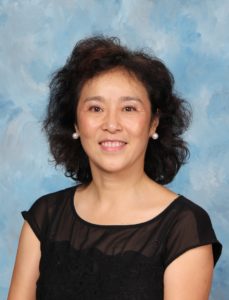
October 6: Spark Curiosity, Address Social Justice, and Cultivate 21st-Century Skills Through Project-Based Learning
Project Based Learning (PBL) is an instructional approach that involves students in acquiring knowledge and skills through an extended period of active research and investigation and response to a genuine, complex, and challenging question or problem. PBL plays an extremely important role in the teaching and learning of world languages and use the language as a tool to address critical real-world topics. More importantly, PBL can help students take ownership of their learning and become more engaged and motivated.
During this session, attendees will observe the presenter’s demonstration of incorporating the principles of Project Based Learning (PBL) and the model of “Genius Hour” (also called “Google’s 20% Project”) to develop a series of Chinese classroom projects. You will gain insights into the project design thinking process, the step-by-step implementation plan, logistics, and strategies for involving students in the evaluation process, among other topics. Presenter will not only share how to provides students opportunities to use the target language in meaningful and authentic ways; but also demonstrate how to use collaboration and communication, which are essential skills for language learners, to guide students explore social justice issues.
Ying Jin has been teaching Chinese language and culture in diverse settings, including middle schools, high schools, and colleges in both the U.S. and China for more than 20 years. She currently teaches all levels of Mandarin Chinese, including AP Chinese, at Cupertino High School in Cupertino, California.
Ms. Jin has served on the board of the American Council on the Teaching of Foreign Languages (ACTFL) from 2020 – 2022. Ms. Jin has also served as the President of Chinese Language Association of Secondary-Elementary Schools (CLASS) in 2019 and 2022, and has been a member of the CLASS board since 2015.
Ms. Jin was named 2018 Teacher of the Year by ACTFL, 2017 Teacher of the Year by the Southwest Conference On Language Teaching (SWCOLT), and 2016 Teacher of the Year by the California Language Teachers’ Association (CLTA).
Ying Jin received her M.A. in Instructional Technologies from San Francisco State University and B.A. in Chinese Language and Literature from Peking University, China.
